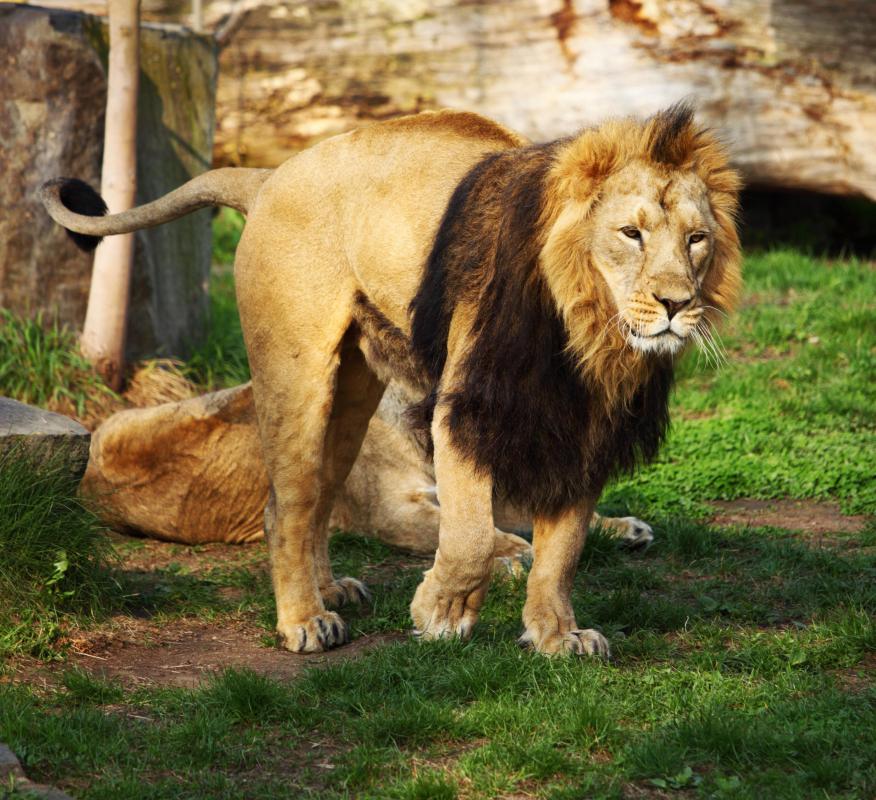At PracticalAdultInsights, we're committed to delivering accurate, trustworthy information. Our expert-authored content is rigorously fact-checked and sourced from credible authorities. Discover how we uphold the highest standards in providing you with reliable knowledge.
What are the Different Animal Trainer Jobs?
Among the many jobs working with animals, animal training can be one of the most difficult, yet enjoyable, jobs available. There are many different types of animal trainer jobs, each requiring special training and skills. Many animal trainer jobs focus on training service animals, which assist humans in performing daily activities and remaining safe in their home environments. Such animal trainer jobs include those involved with the training of capuchin monkeys, service dogs, and even miniature horses.
One of the more popular animal trainer jobs is dog training. Dog trainers often specialize in one or more areas of training. Many dogs are actually working dogs and help herd other animals. Some dogs are trained to assist law enforcement and military personnel in the detection of drugs and people. These dogs are also trained to protect and attack when necessary.
Another type of dog training is done for obedience purposes. This is a very well-known job, and an important one for many dog owners. Obedience trainers teach or condition dogs to behave properly and respond to specific commands.

Show dogs often receive specialized lessons from an animal trainer, and this can be a very lucrative field to work in. Show dogs have to not only appear healthy, but they must behave in a manner that judges are looking for. These behaviors can be produced through proper training.
Other animal trainer jobs involve training horses to either race or perform in horse shows. Trained horses may compete in dressage, a series of tests to showcase the horse's movements, including walking and trotting. Horses can also be training for show jumping, rodeo, and other competitive events.

Wild animal trainers work with animals such as lions, elephants, dolphins, and sea lions. Many of these animals are trained for entertainment purposes and can be found performing at circuses, educational facilities, and amusement parks. At times the animals are even trained for television or movie performances.
Some of the lesser known animal training jobs include bird trainers and chicken trainers. Bird trainers often train birds to perform, or at least behave, in a safe manner during educational presentations. Chicken training is actually used to help other animal trainers improve their techniques.

Animal trainers usually have an educational background in zoology, marine biology, veterinary science, or a related subject before they work as a trainer. Many animal trainers are employed by large facilities, such as marine parks, zoos, and amusement parks. Some animal trainers are self-employed or own a training business that provides services on a contract basis.
AS FEATURED ON:
AS FEATURED ON:

















Discussion Comments
@croydon - I'm kind of torn about it when it comes to movies. I usually don't like it when they use puppets and CGI because it's very obvious and it tends to take me out of the movie.
But, on the other hand, I read recently about how they trained dozens of squirrels for months in order to get them to act properly for a short scene in the Willy Wonka remake.
Did they really have to force those poor squirrels to train for hours and hours over a long period of time in order to get a few seconds of film? Why couldn't they just use CGI? It just doesn't make sense to me.
@clintflint - I don't think it does any harm as long as it's done in a humane manner. They generally have to work with the animal's instincts in order to get them to do anything anyway.
Animal trainer jobs are generally taken by people who love animals and wouldn't want to hurt them.
In some cases I don't think that animals should be trained for the things they are trained for. It's OK when dogs and horses are trained up because they have been bred to want to work with humans and the training isn't stressful for them if done right. For dogs, at least, it can be very good for them to know that they are useful in their group and to know their place.
But I've read about all kinds of animals being forced into roles that don't really suit them, for movies or circus tricks or to otherwise amuse humans. Big cats, for example, shouldn't be trained or expected to do tricks. I'm not completely against them being kept in captivity, because I think it can be done without harming them.
But I don't think they can ever really be made to enjoy performing tricks and I think it's ultimately dangerous to try, for both them and the people who train them.
Post your comments